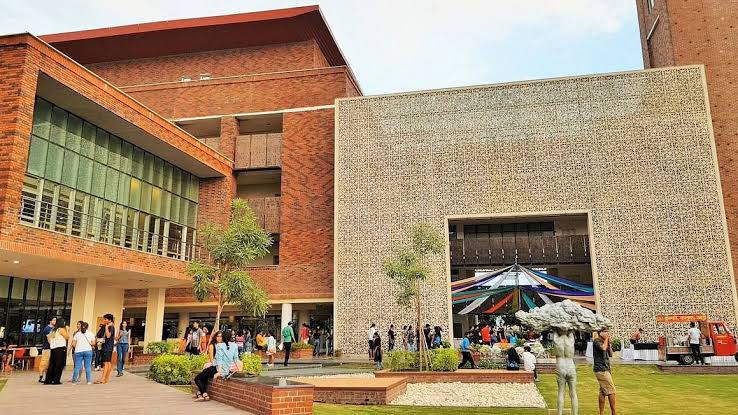
Ashoka University students initiate a campaign to persuade the administration to conduct a comprehensive caste census of students and employees. The demand is presented as a first step to understand the composition and diverse needs of the campus population.
Social Justice Forum, a student body representing the Scheduled Caste, Muslim, Scheduled Tribe, Kashmiri Muslim, and other ethnic minority students inside the campus, had earlier put forward the demand for an Anti-Discrimination Cell or Equal Opportunity Cell.
The Cell, in the words of the students, must be an independent and fair body to address and take action on the various acts of discrimination that students from marginalised communities face on campus.
According to the Forum representatives, Ashoka University campus in Sonipat had witnessed several instances of discriminatory acts and behaviour against people from marginalised communities
Due to the lack of a formal reporting body and the incompetence of existing redressal bodies, these incidents often remain unaddressed.
The official letter sent to the Vice Chancellor on 7 November, further argued that the absence of a formal body to deal with these issues is not only an institutional failure but also a violation of law. They cited the University Grants Commision (UGC) Promotion of Equity in Higher Educational Institutes Regulations (2012), which include directions for higher education institutions in the country to appoint liaison officers to check reservation fulfilment, and to establish formal grievance redressal bodies to address concerns of discrimination.
Considering the possible delay in establishing a formal redressal cell, the forum urged to form an interim body to register any incidents of discrimination, as soon as possible, for the meantime. The letter pushed the administration to ensure adequate student representation in both the interim and the permanent bodies to maintain transparency.
An ultimatum of 14 days was served to the VC to respond to the letter.
Though VC welcomed the proposition and promised to establish a Students Grievances Redressal Cell (SGRC) and an Equal Opportunities Cell, the plan he explained was not in terms with the concerns raised by the students.
He said that the committee could be operational only in the next semester due to the official preparations required, and meanwhile the students were requested to seek the support of the registrar, who is the nodal officer. The demand for a representative interim body was declined.
Additionally, in the reply drafted on November 17 the VC highlighted that this process will include “elected student representatives in the composition of both these committees.”
The response sparked heated debates among students and many deemed the response as a token gesture. They challenged the promise stating that merely establishing an elected student body is insufficient, rather the university must actively engage with the diverse needs of various groups to guarantee a genuinely fair process.
It was also pointed out that the grievance registering mechanism headed by the nodal officer is inefficient and potentially biased. Students shared instances of discrimination, including casteist slurs and identify based intimidations that were earlier addressed inappropriately.
According to the members of the Social Justice Forum, for enabling an egalitarian election process and implementing a substantial solution, the administration should ensure a genuinely equitable and representative foundation for this cell.
“The key to fostering a conversation on representation starts with a clear understanding of our campus’s composition. The university must grasp the specific needs of different groups and address the shortcomings in diversity initiatives. Hence, the Social Justice Forum unequivocally calls for a comprehensive caste census covering all students and employees on campus—a fundamental first step,” they added in the second letter written to VC on November 30.
Both the petitions calling for the formation of Anti-Discrimination Cell and Caste Census were signed by around 200 individuals including students, staff and alumni.
“Ashoka University has marketed itself for its diversity, but it is high time for the data about the representation of students and employees belonging to Dalit, Muslim, Scheduled Tribe, disabled and other backward communities be counted and made public,” one of the members of the Social Justice Forum said to Maktoob.
The campaign is spearheaded by the current and old members of Social Justice Forum with the support of the like-minded among the university community.
The collective was founded by a group of individuals from the Young India Fellowship (YIF) batch of 2023, to advocate the concerns of students and staff coming from marginalised backgrounds, and to open insightful dialogues on issues of caste, class, religious and ethnic minorities, tribes, and gender within the campus.



